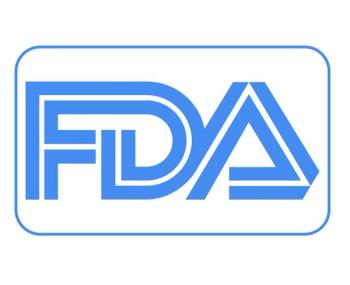
Pediatricians Issue Dangerous New Treatment Guidelines for Attention Deficit Disorder
Despite its caveats and good intentions, the AAP guideline will surely invite an inappropriate glut of medication for preschoolers . . .
Sharon Kirkey of Postmedia News has published
It is absolutely clear that medication can be very helpful for ADD in carefully diagnosed school-age kids who have moderate/severe problems and who have not responded to patient watchful waiting, parent training, and behavioral interventions. But in busy practice settings, ADD is often inaccurately diagnosed and prematurely treated with medication-especially under the pressure of heavy drug company marketing to physicians and direct advertising to parents and teachers.
Medication for preschoolers should be undertaken only under very special circumstances by people who are especially expert in ADD-like the creators of the AAP guidelines. But it is a great mistake to encourage such early use of medication in much less expert general practice-especially since preschoolers are difficult to diagnose accurately and may be more prone to harmful medication effects like loss of appetite, failure to gain weight appropriately, abdominal pain, headaches, agitation, and disturbed sleep. And there are rare but dangerous cardiac risks. Safety in young children has not been studied nearly enough to inspire any confidence about short term problems and long term risks. This should be a treatment of very last resort in preschoolers, reserved for those with the most severe problems and delivered by those with the greatest expertise.
Mark Wolraich, the lead author, is quoted as follows justifying the guidelines "Because of greater awareness about ADHD and better ways of diagnosing and treating this disorder, more children are being helped. Treating children at a young age is important, because when we can identify them earlier and provide appropriate treatment, we can increase their chances of succeeding in school."
Clearly, he is touting the benefits (which certainly may be appreciable for some), but ignoring the risks (which may be appreciable for others), and the fact that very little research has been done to assess the accuracy of diagnosis and the safety of medication in very young children-especially in general practice settings.
The AAP guidelines do take the useful precaution of recommending a first line trial of behavioral interventions in preschool children with stimulants to be used later only for those with moderate to severe symptoms which have not improved after behavior therapy. But experience suggests that these cautions will be widely ignored in busy everyday practice, especially because behavioral approaches are usually unavailable and medication is so highly promoted and readily available.
Thus, despite its caveats and good intentions, the AAP guideline will surely invite an inappropriate glut of medication for preschoolers. And we will be largely flying blind about its impact. Much more study and cautious consideration of the risks and unintended consequences should have preceded the issuance of prestigious guidelines so likely to greatly influence practice habits.
How could the AAP experts in ADD go so far wrong? It really should be no surprise-the ADD experts working on DSM-5 are making precisely the same kind of expansive, reckless mistakes. These poorly conceived AAP guidelines confirm the folly of placing responsibility for important public health decisions solely in the hands of highly specialized experts who have worked only in university settings. Experts are almost always hopelessly nave about how their guidelines will be misused in real life. We have already experienced a vast expansion in the diagnosis and medication treatment of ADD and these new AAP guidelines will encourage a further feeding frenzy of aggressive marketing by drug companies. The cautions included in the guidelines to protect against the first line use of medications will be routinely ignored, many young kids will be carelessly diagnosed, and they will receive unnecessary medication. The evidence that drugs are safe in preschoolers and will be judiciously prescribed in everyday practice is ridiculously incomplete. The ADD diagnosis will doubtless often be made prematurely in very young children who will then receive unnecessary and potentially harmful medication. If any diagnostic or treatment guideline can possibly be misused it will be-especially once drug company marketing distorts its intended use.
The recklessness of the AAP in producing this treatment guideline for ADD and of the American Psychiatric Association in reducing the thresholds for the DSM 5 diagnosis for ADD together prove that important public health decisions cannot be entrusted to narrowly focused professional organizations. Experts on any topic have an inherent intellectual conflict of interest that prevents them from performing properly balanced and unbiased risk benefit analyses. They consistently tend to exaggerate the benefits and ignore the risks of their suggestions-especially as these will play out in general practice. Experts drawn from pediatrics and psychiatry are needed to inform, but should not exclusively control, the development of the diagnostic and treatment guidelines for ADD.
In my view, the AAP treatment guidelines and the DSM-5 diagnostic guidelines both need to be tightened before they will fit for use by the average practitioner. In their current form, both are far too expansive and far too risky-they are best ignored.
Newsletter
Enhance your clinical practice with the Patient Care newsletter, offering the latest evidence-based guidelines, diagnostic insights, and treatment strategies for primary care physicians.

































































































































